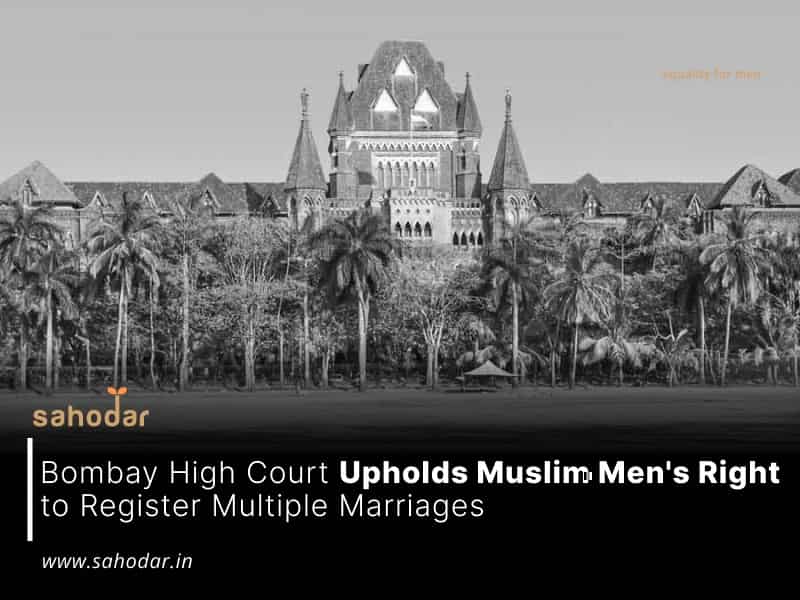The Court stated that the Maharashtra Regulation of Marriage Bureaus and Registration of Marriages Act does not bar Muslim men from registering more than one marriage since it is permitted under the Muslim personal law.
The Bombay High Court recently held that a muslim men’s right to register multiple marriages under the Maharashtra Regulation of Marriage Bureaus and Registration of Marriages Act, 1998. [Mezouar Zouaouia and Anr v. Thane Municipal Corporation and Ors].
A bench comprising Justice BP Colabawalla and Justice Somasekhar Sundareshan clarified that the Act does not prohibit Muslim men from registering more than one marriage, as this is allowed under Muslim personal law.
“In the entire Scheme of the Act we do not find anything that would preclude a Muslim Male from registering a third marriage. In fact, Section 7(1)(a) specifically contemplates that the Registrar has to ensure that the marriage between the parties is performed in accordance with the personal law of the parties. It is not even disputed by the authorities that under the personal laws for Muslims, they are entitled to have four wives at a time,“ the Court said.
The case involved an Indian man and his Algerian wife (the petitioners) who attempted to register their marriage after the Thane Municipal Corporation rejected their application. This was the man’s third marriage.
The authorities argued that the couple had not submitted the required documentation and contended that the law allows Muslim men to register only one marriage.
During the hearing, the couple’s advocate pointed out the inconsistency in the Corporation’s actions, highlighting that the man’s second marriage to another woman, a Moroccan citizen, had been registered without issue.
The Corporation’s lawyer argued that the couple had failed to submit key documents, such as identity and birth proof. However, the petitioners’ advocate insisted that all necessary documents had been provided. To resolve the matter, they offered to submit any additional documents the Corporation required and requested a fair hearing on the registration of the marriage.
The Court decisively dismissed the idea that only one marriage could be registered, emphasizing that such an interpretation would undermine Islamic personal laws.
“If we were to accept this submission, it would effectively mean that this Act overrides and/or has displaced the personal laws of Muslims. There is absolutely nothing in this Act to indicate that the personal laws of Muslims have been excluded. As mentioned earlier, the personal laws of the parties is a very important factor that has to be taken into consideration whilst deciding whether a particular marriage ought to be registered or otherwise,“ the Bench said.
The Court also highlighted the inconsistency in the authorities’ actions, pointing out their previous approval of the petitioner’s second marriage.
“ironically, we find that these very authorities, under the provisions of The Maharashtra Regulation of Marriage Bureaus and Registration of Marriages Act, 1998, have registered the marriage of Petitioner No.2 (the husband) with his second wife (a Moroccan citizen at the time of her marriage),“ the order said.
The Court directed the authority under the Act to accept the required documents and hold a personal hearing for the couple. A reasoned order, either approving or denying the marriage registration, must be issued within ten days after the hearing. If the registration is denied, the case will be referred to the Registrar General under the Act for further review and hearing.
To safeguard the wife’s rights, the Court also prohibited any deportation action against her during the marriage registration process and for two weeks afterward.

